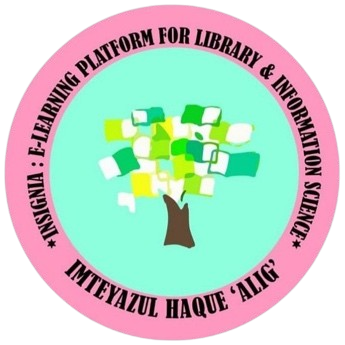Prepare by asking yourself many questions as possible, like “What is a library, its functions, the role of a library etc.” This will help clarify your concepts.
Matlab: sabse pehle aap khud se sawal kare basics se bilkul jaise library kya hai eske features, functions, etc. jaise jaise sawal ye sab ayega apke mind me waise aur v sawal ayenge ye bhi ek tarika hai tyaari karne ka aur sabko ek diary me likhiye
Secondly, review your BLIS and MLIS syllabus, identify any unclear topics, and focus on mastering them. For example, if management is a topic, narrow it down to its specific sub-topic e.g., Library Management Functions, HRM, Budgeting etc. Similarly, for IT, break it down into sub-topics like hardware (e.g., servers, computers, networking equipment) and software (e.g., library management systems, digital resource tools). By this way, you’ll be better equipped to grasp key concepts.
Matlab: Dusra, Aap blib and mlib ke syllabus ko ache se padhiye, Blib ke syllabus dekhiye aur usme ek ek subject ko ache se padhiye aur notes banaiye phir mlib ko bhi aise kijiye. Aise bhi aap tyari kar sakte hai interview ki aur aise apko knowledge bhi bahut hoga. Jaise: Management hai toh esme apko Management kya hota eske principles, phir HRM, phir budgeting phir reporting etc. aise hi aap IT le lijiye esme v apko Hardware, softwares, open source, types of software, library softwares etc. aur notes zrur banaye
Lastly, research the institution you’re interviewing with. If it’s a technical institute like IIT, be familiar with their software, databases, and indexing services etc. Tailor your preparation to the specific institution to make a strong impression.
Matlab: Aap kahi bhi jaye toh uske institute ke baare me padhe zrur. Jaise IITs me ja rahe toh uske websites ko dekhe unke databases, software konsa wo use karte aur services kya kya hai etc.
NOTE: Interviews are never pre-planned, and you won’t know all the questions in advance. What matters most is how you answer, your communication, and body language, Please note that the questions provided here are intended solely to give you a general idea and help you prepare for the interview.
Matlab: Hamesha yaad rakhiye, Interview kabhi bhi pehle se decide nhi hota ki ye sawal puchna hai ya hona hai aap kya bolte hai kaise bolte hai ye matter karta hai, aap sabkuch padh ke jaiye kuch bhi sawal ho sakta hai. Baqi maine apko ek idea diya hai aise tyaari kare Interview ki Umeed hai acha hoga sabhi ka aur aapko mehnat karni hogi interview ke liye bhi or knowledge ke liye bhi.
Becoming a school librarian is more than just managing books—it’s about creating a dynamic, engaging, and technology-integrated learning space for students. To succeed in your KVS or private school librarian interview, you need subject expertise, creativity, and a student-centric approach.
Step 1: Understand the Role of a School Librarian
A school librarian is a mentor, guide, and tech facilitator who helps students develop a love for reading, research skills, and digital literacy.
Responsibilities:
- Encouraging reading habits through storytelling and book clubs.
- Supporting teachers with academic resources.
- Managing library automation using KOHA, e-Granthalaya, and SOUL.
- Teaching students digital literacy, research skills, and information ethics.
- Implementing CBSE/KVS library policies and NEP 2020 recommendations.
Step 2: Review the basics of Library Science
To stand out in the interview, master key library management concepts such as:
- Cataloging & Classification – Understand DDC (Dewey Decimal Classification), CC UDC, AACR2, and RDA (Resource Description & Access).
- Library Automation – Be familiar with KOHA, e-Granthalaya, SOUL, and OPAC (Online Public Access Catalog).
- Reading Promotion Strategies – Organize book clubs, storytelling sessions, reading challenges, and author interactions.
- Online Learning Platforms & Digital Resources
NCERT, ePathshala, NDL India, DIKSHA, and Swayam – Digital learning tools for students.
CBT, NBT, and NCERT Publications – Essential children’s books and magazines. - School Library Policies & Trends
NEP 2020 – Libraries as digital learning hubs.
CBSE & KVS/NVS Library Rules – Book selection, budget management, and stock verification. - Technology in Libraries – Smart libraries, RFID, QR codes, and e-books.
Step 3: Common Interview Questions & Best Answers
Frequently Asked Questions & How to Answer Them
- Tell us about yourself.
Example Answer: “I have a Master’s in Library & Information Science with experience in managing school libraries. My passion is to make the library an interactive space where students can explore books, research, and digital tools for learning.” - Why do you want this role?
Example Answer: “I love working with students and believe that libraries are the heart of Institution. I want to help young learners develop reading habits, research skills, and digital literacy.” - How will you make the library engaging for students?
Example Answer: “I will organize reading challenges, storytelling sessions, author talks, and book clubs to make reading fun. I’ll also integrate technology like QR codes for book recommendations and interactive learning apps.” - How can technology improve the library experience?
Example Answer: “Technology can make libraries more accessible and interactive. I will implement OPAC for easy book searches, e-books for remote access, and QR codes for digital resources.” - How will you select books for the library?
Example Answer: “I will follow CBSE/KVS guidelines, assess curriculum needs, consider student reading levels, and include diverse books to promote inclusive learning.” - How will you maintain discipline in the library?
Example Answer: “I will set clear library rules, designate silent reading zones, and engage students through structured activities like book discussions and creative reading sessions.” - How can you support teachers?
Example Answer: “I will assist teachers by curating subject-specific resources, recommending research materials, and setting up thematic book displays based on classroom topics.” - How do you prevent book loss and manage inventory?
Example Answer: “I will implement RFID/barcode tagging, an automated check-in/check-out system, and student awareness programs about library etiquette.” - How will you teach students about online information literacy?
Example Answer: “I will conduct workshops on effective online search strategies, fact-checking, avoiding fake news, and responsible internet usage.” - Could you suggest some publishers for purchasing books?
Example Answer: S. Chand, Pearson, Penguin Books, HarperCollins etc.
- Name some good books that you would suggest to your students for reading
Tip: Answer with real-life examples from your experience to make your responses more impactful. Also Review previous KVS/NVS exam papers to understand question patterns.
Final Tips for Success
- Read NCERT & CBSE Guidelines – Know about school library policies and best practices.
- Learn KOHA & e-Granthalaya – Many schools use these library automation tools.
- Prepare a Short Library Lesson – Be ready to give a 5-minute demo on library usage.
- Show Enthusiasm for Books & Teaching – Schools prefer librarians who are passionate educators.
- Be Creative & Tech-Savvy – Demonstrate how you’ll use technology, storytelling, and reading programs to engage students.
- Stay Informed on Current Affairs, Arts & Culture – Have knowledge of current affairs, art, culture, entertainment, and government topics to engage students in meaningful discussions.
- Understand AI Applications in Libraries – Be aware of how AI is being integrated into library services, such as chatbots for user assistance, and data-driven collection development.
- Review IFLA policies and Dr. Ranganathan’s views on school and academic libraries.
Show your enthusiasm, and you’ll make a lasting impression in your interview!
With best wishes,
Imteyazul Haque
INSIGNIA: E-LEARNING PLATFORM FOR LIBRARY AND INFORMATION SCIENCE

